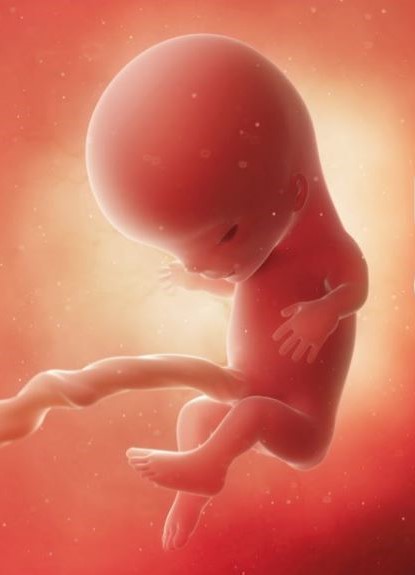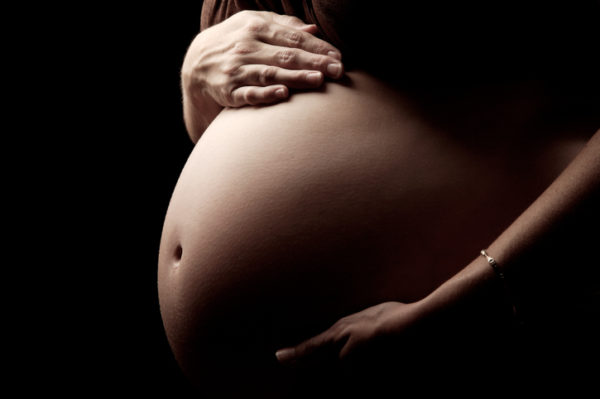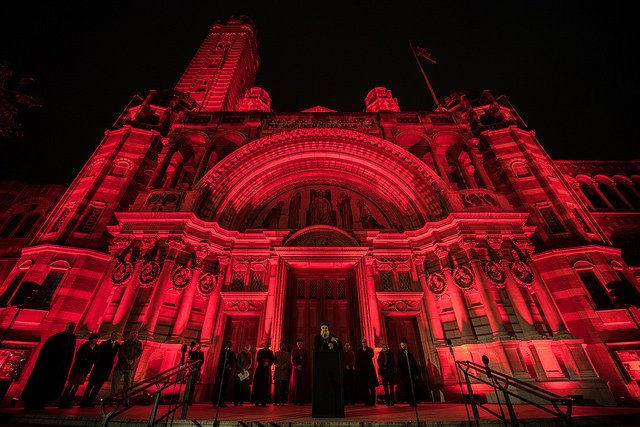
Catholic primary schools will not be able to give priority access to children of Catholic families from September next year, following the passage of the so-called “Baptism barrier” legislation in the Dáil on Tuesday night.
The School Admissions Bill prohibits Catholic denominational schools from giving enrolment priority to baptised children in cases where they are over-subscribed. However, minority faiths will still be allowed to prioritise members of their religion in order to protect their ethos in cases where they are over-subscribed.
There is also a provision to allow all-Irish primary and secondary schools to give enrolment priority to Irish-speaking children. Mr Bruton said this would set a “high bar” for children who use Irish in their daily lives and not just at school. Parents would have to provide evidence of this.

The Taoiseach has condemned the special protection given by the Constitution to the family “based on marriage” as anachronistic for not including other kinds of families. He made the remark during a Dail exchange on the women in the home provision in the constitution. He indicated that Government would look at the definition of the family next year with a view to another referendum.
He was responding to a question from Eamon Ryan of the Green Party who recommended that instead of deleting the Constitution’s article on protecting mothers in the home, it should be reworded to support all kinds of gender-neutral, caring work. However, the Taoiseach said the Government want to delete the article as they believe it is “sexist and anachronistic”. He said that there needs to be a re-consideration of caring and the definition of the family at some stage. But for now, he added, “It is time to separate this idea that women are inherently linked with caring and family because a woman’s place is where she wants it to be and that is not necessarily in the home.”
He also said the definition of the family in the constitution, as based on marriage, “is anachronistic too” as, he claimed, it does not see one parent or lone parent families as families. Because of this, he said, the Government will look at redefining the family in 2019.

Medical professionals who have a conscientious objection to providing abortions will be legally obliged to refer patients to pro-choice doctors, under legislation published by the Government on Tuesday. The Cabinet approved the heads of the Health (Regulation of Termination of Pregnancy) Bill, which provides for abortion in wide-ranging circumstances right up to birth.
The Bill does allow medical practitioners to conscientiously objection to executing abortions themselves. However, it also states that they must make “arrangements for the transfer of care of the pregnant woman concerned as may be necessary to enable the woman to avail of the termination of pregnancy concerned”.
Speaking after the Cabinet meeting, Minister for Health Simon Harris confirmed services for the termination of pregnancy “will be provided on a universal basis – so that cost is not a barrier for women to access these services”.
Responding to fears that persons recognised by the law as transgender men, but who are biologically female, might not have a right to abortion, it is understood Mr Harris has been advised the Bill will provide for trans people but is open to examining it further.
The Bill cannot be introduced in the Oireachtas until the legal challenges to the referendum result have been completed.

Minister for Health Simon Harris is to ask the Cabinet to approve State funding for abortion. The Minister brought the heads of the Health (Regulation of the Termination of Pregnancy) Bill to today’s Cabinet meeting, which will legalise abortion in wide-ranging circumstances. That includes abortion on demand for the first 12 weeks, where there is a risk to mental health up to 24 weeks, and where there is an emergency risk to mental health up to nine months. It will also allow the abortion, up to birth, of babies with serious disabilities if it is thought they would likely live no more then 28 days after birth.
Government sources said the Minister had been clear that cost should not be a barrier to women wanting abortions. It is understood Mr Harris is examining whether services can be provided under the Maternity and Infant Scheme. Currently, that programme allows for maternity services free of charge when provided by a family doctor and a hospital obstetrician but this could be expanded to women who want an abortion of their unborn child.

A call has been made to publish a mandated review of Ireland’s gender-changing law which is one of the most radical in the world. The law, introduced in 2015, allows individuals change their legal gender on request, and minors aged 16 and over, after a routine court process. The law mandated that a review of its operation be conducted after two years and be delivered to the Government. That review was brought to the cabinet by the Minister for Social protection Regina Doherty yesterday. It is thought to include a recommendation that those 16 and over should no longer have to undergo a court process to change their legal gender. Even more radically, it recommends that children under 16 should also be facilitated in changing their gender and that courts should become involved in adjudicating gender-recognition applications for children only when a parent does not give consent or there is a concern about mental health.
Sinn Féin Senator Fintan Warfield has called for the report’s immediate publication. Mr Warfield said the 2015 Act was “one of the most progressive pieces of legislation in the world” with the exception of the provisions for children under 16 and those in the 16/17 age category. He hopes that legislative changes to facilitate minors changing their legal gender would happen without delay. This, he said, “will end forced outing of oneself if certain legal documents (including birth certificates) align with a person’s true gender”.

Unborn babies suffering serious disabilities who are not likely to live beyond 28 days after birth will be eligible for abortion at any stage up to birth under the abortion bill being prepared by Minister Simon Harris. The provision for abortion in the case of so-called “fatal foetal abnormality” or babies with life limiting conditions was never clearly defined prior to this. In the draft scheme of the bill, the case was described by the phrase “likely to die shortly before or after birth” where, in legal terms, “likely” represents nothing more than a greater than 50% chance. The “shortly after birth” will now be defined as any time up to 28 days.
Minister Harris will bring the Heads of the Health (Regulation of the Termination of Pregnancy) Bill to Cabinet on Tuesday, for the approval of the Government.

Legislation to enable the use of donor sperm, eggs and embryos, that was rushed into law prior to the Marriage referendum in 2015, will be corrected by another piece of legislation that is set to come before the Dail soon.
Provisions for the creation of a register to allow donor-conceived children obtain personal family information once they turn 18 and to ban anonymous gamete donation was contained in 2015 Children and Family Relationships Act. But the minister at the time did not commence enactment of parts two and three of the legislation which would have brought the measures into force immediately. “During the preparation of regulations to facilitate the commencement of parts two and three of the Act, a number of technical drafting issues came to light that required amendments to the Act of 2015 through primary legislation,” a Department of Health spokesman said. Mr Harris received Government approval last week to draft an amendment to the Bill to remedy the defect. The Minister “hopes to be in a position to introduce this legislation into the Dáil as soon as possible and commence parts two and three of the Children and Family Relationships Act in the autumn”. The department was responding to the announcement last week by international clinic Institut Marquès that it was offering women undergoing IVF in Ireland the use of anonymously donated eggs without having to travel abroad. This new bill would aim to prohibit such a practice.

A group of lesbian activists blocked the start of the Pride in London march Saturday in protest against men who identify as transgender, lesbian women.
Using a banner that read: “Transactivism erases lesbians” and another that said “Lesbian = female homosexual”, one of the activists shouted: “A man who says he’s a lesbian is a rapist”. They also distributed a flyer that said: “The trans movement is… coercing lesbians to have sex with men. We firmly condemn this vicious form of anti-lesbianism disguised as progress.”
Speaking to Gay Star News, Jan Williams from a group called Object said: “Transgenderism is conversion therapy. Conversion therapy is wrong.” She continued: “Only women can be lesbians. A man who has surgery can never be a lesbian.”
Sarah Mason, founder of Get The L Out, told GSN the group is an alliance of lesbian and feminist organisations. She said her sexuality is seen as transphobic and exclusive “just because we are women attracted to women.”
“We don’t want any kind of penis in our bedroom,” she said. “I’m really sad I have to reassert this again. It’s everywhere online – it’s everywhere in LGBTQ centres.”

There is a danger that suicide prevention may change into suicide assistance according to speakers at a symposium in Oxford this week. The Anscombe Bioethics Centre, a Catholic academic institute, held a three-day symposium on the ethics of psychiatry and mental health care this week. One of the speakers was Professor Patricia Casey, a patron of The Iona Institute.
Michael Wee, the education officer at the Centre said psychiatrists and mental health professionals are precisely the kind of persons those who are suicidal might go to for help.
“The shift to suicide assistance, by the very people whose role we customarily think of as being suicide prevention, is one that will therefore interest and, indeed, alarm many,” he said.
Earlier this year, medical professionals in the Netherlands performed euthanasia on a 29-year-old woman suffering from depression and other mental ailments, after the country widened its euthanasia laws to allow it for those with mental illnesses. Euthanasia for people who are not terminally ill, but suffering psychiatric disorders, is also legal in Belgium.
“We wanted to highlight the way that physician-assisted suicide is also a mental health issue and that the norms of suicide prevention should also apply to people to are seeking to end their lives by assisted suicide,” said David Albert Jones, the director of the centre.

A Special Envoy on Freedom of Religion or Belief has been appointed in the UK to promote international religious liberty and fight persecution. Lord Tariq Mahmood Ahmad, Minister of State for the Commonwealth and the United Nations, is the very first person to be selected for the role. Lord Ahmad “will promote the UK’s firm stance on religious tolerance abroad, helping to tackle religious discrimination in countries where minority faith groups face persecution,” the Foreign and Commonwealth Office said in a statement Wednesday.
Ahmad said he was delighted by the appointment and plans to “use the UK Government’s global network to reach across religious divides, seek the elimination of discrimination on the basis of religion or belief and bring different communities together.”
“In too many parts of the world, religious minorities are persecuted, discriminated against and treated as second class citizens. As a man of faith, I feel this very keenly,” he said in a statement.
“Freedom of Religion or Belief is a human right enshrined in the Universal Declaration of Human Rights. It must be respected. People from all faiths or none should be free to practise as they wish. This respect is key to global stability, and is in all our interests.”